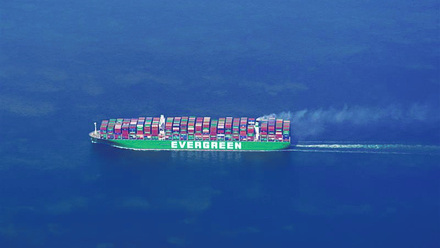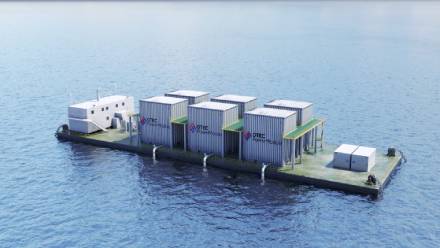UK Maritime 2050 – a bold new vision for the maritime sector
The UK’s Department for Transport has launched its first ever long-term strategy for the UK maritime sector on 24 January 2019. The Maritime 2050 strategy outlines a range of short, medium and long-term proposals, including developing technology, people, and infrastructure, to ensure the ongoing development of the maritime industry in the UK.
Utilising collaboration between departments, the UK government will strengthen its partnership with the maritime industry as they work together to implement the strategy – challenging the sector to contemplate how it will have evolved by 2050.
Last year the IMarEST’s Chief Executive David Loosley, was appointed to the Maritime 2050 expert panel by Transport Secretary, Rt Hon Chris Grayling. The panel was appointed in order to provide challenge and guidance to government and review the development of the long-term strategy. Drawing upon the wealth of experience from across the full breadth of the sector, the panel contributed advice and recommendations throughout the review and discussion process.
Hugh McNeal, chairman of the Maritime 2050 expert panel, said: “Over the last year it has been a privilege to chair the expert panel which has brought together leaders from across the sector, from other world-class industries, academia and promotional bodies, to challenge and support the development of Maritime 2050. The result is a wide-ranging and hugely ambitious blueprint for Britain’s future as a maritime nation ensuring the economy continues to grow successfully into the second half of the 21st century.
“The recommendations published today will enable Government and industry to work together to increase trade, attract investment and foster innovation across our thriving maritime sector, while progressing clean maritime growth.”
The IMarEST contributed a significant array of knowledge to the panel, backed by the views of its diverse membership base across the engineering, science and technology spectra. In addition to David, one of the IMarEST’s Honorary Fellows, Prof. Costas Grammenos CBE DSc FCIB Hon. FIMarEST FRSA of Cass Business School, was also a key member of the expert panel.
David said on the launch of the strategy: “It’s great to see an ambitious, long-term approach taking the lead on innovation, the future maritime workforce and the transition to zero-emission shipping.”
The Maritime 2050 strategy covers a wealth of aspects, being built on seven high-level themes ranging across the social, science and environmental domains. These themes and ambitions are:
UK Competitive Advantage
Ambition: Maximise the UK’s strength in maritime professional services, retaining and enhancing the UK’s competitive advantage in the provision of maritime law, finance, insurance, management and brokering, and developing its green finance offer.
Environment
Ambition: Lead the way in taking action on clean maritime growth, enjoying economic benefits from being an early adopter or fast mover.
Infrastructure
Ambition: Support the continued multi‑billion pound commercial investment in maritime infrastructure that makes the UK a globally attractive destination for all maritime business.
People
Ambition: Grow the UK’s maritime workforce and transform their diversity enhancing our reputation as the world leader in the provision of maritime education and training.
Security
Ambition: Continued recognition of the UK being the global leader in maritime safety and security standards and expertise worldwide.
Technology
Ambition: Strengthen its reputation for maritime innovation, maximising benefits to the UK from new maritime technology through its world-leading universities, maritime SMEs and global companies.
Trade
Ambition: Promote a liberalised trading regime that delivers maximum benefit for the UK maritime sector.
The UK Government has released a full 338-page report, alongside a shorter executive summary of the Maritime 2050 strategy that you can view on its website.





